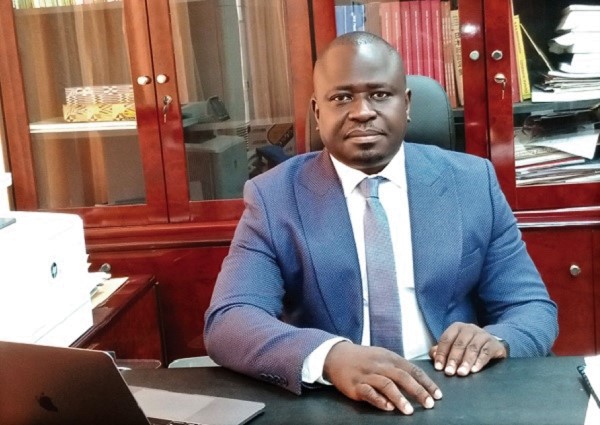Local economies in border communities have experienced the highest dip in economic activity and production due to the outbreak of the Coronavirus.
This is an outcome from a local economic tracker survey by the Ghana Statistical services.
According to the Government Statistician Professor Samuel Kobina Annim, although the entire country has experienced a form of impact, communities along the borders that had the highest rate of food prices and lowest production in economic activities, a situation which brought some hardship to the indigenous people during the period.
The survey conducted in 2,770 localities in the country from May to June this year indicates that many of the respondents do not believe that the local economy can be revived within a year.
Localities in border districts recorded higher price increases in food and non-alcoholic beverages compared to price surges in lockdown and other districts.
Giving out some of the highlights, Professor Kobina Anim disclosed to Journalists that despite the interventions by government and other civil society organizations, many border communities were disadvantaged.
“Covid-19 has undoubtedly had a devastating impact on households, businesses, and the local economy,” he said.
Non-state actors
Meanwhile, the statistical report revealed that non-state actors also contributed significantly to mitigating the impact of the pandemic.
“Support received by the communities from churches and philanthropists is a clear demonstration of how non-state actors have and continue to complement government’s efforts to ensure communities recover better from the pandemic. Partnerships like these are key for the achievement of SDGs,” noted Silke Hollander, Deputy Resident Representative of UNDP in Ghana.
Crime rate
The survey results also revealed that localities witnessed an increase in crime during the country’s Covid-19 lockdown period, with about three out of ten communities (34.1%) experiencing a rise in crime, such as theft and burglary. This was followed by domestic violence (3.7%) and assaults (3.1%) in communities.
Over 30 percent of the localities surveyed have no idea when the local economy might recover from the Covid-19.
The overall response rate for the survey was 96 percent according to the Ghana Statistical Service.
Latest Stories
-
DAMC, Free Food Company, to distribute 10,000 packs of food to street kids
59 minutes -
Kwame Boafo Akuffo: Court ruling on re-collation flawed
1 hour -
Samuel Yaw Adusei: The strategist behind NDC’s electoral security in Ashanti region
1 hour -
I’m confident posterity will judge my performance well – Akufo-Addo
2 hours -
Syria’s minorities seek security as country charts new future
2 hours -
Prof. Nana Aba Appiah Amfo re-appointed as Vice-Chancellor of the University of Ghana
2 hours -
German police probe market attack security and warnings
2 hours -
Grief and anger in Magdeburg after Christmas market attack
2 hours -
Baltasar Coin becomes first Ghanaian meme coin to hit DEX Screener at $100K market cap
3 hours -
EC blames re-collation of disputed results on widespread lawlessness by party supporters
3 hours -
Top 20 Ghanaian songs released in 2024
4 hours -
Beating Messi’s Inter Miami to MLS Cup feels amazing – Joseph Paintsil
4 hours -
NDC administration will reverse all ‘last-minute’ gov’t employee promotions – Asiedu Nketiah
4 hours -
Kudus sights ‘authority and kingship’ for elephant stool celebration
4 hours -
We’ll embrace cutting-edge technologies to address emerging healthcare needs – Prof. Antwi-Kusi
5 hours

